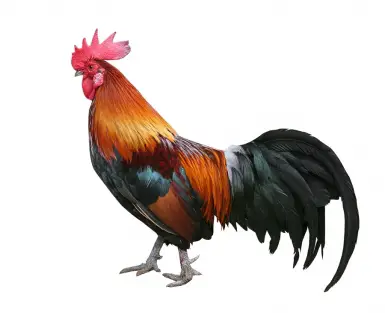
Browse Categories
- Dog Boot Camps
- Test
- Test
- Dogs Please Clicker Training
- Pet Insurance Comparison
- Exercising Pets With An E Scooter
- 10 Reasons Why Guinea Pigs Are Wholesome Little Pets
- Why You Should Use a Shed to House Your Pet
- How can Dog Owners Keep their Carpets Clean?
- How to Keep Your House in Order With Large Pets
- What is the Best Way to Feed a Puppy to Keep Them Healthy
- Pets Please
- All Animals and Pets
- Dogs and Puppies
- Cats and Kittens
- Birds
- Fish
- Reptiles
- All Other Small Pets
- Claws 'N' Paws Events
- PetsInLimbo/Greys4PetsInc.
News Search
PetsPlease News and Advice
How Do Roosters Know When to Crow
Roosters have a reputation of being on time and it seems to boss every animal in the barn. It occupies the highest position in the barn—literally—as it is always depicted as the animal perched on the tip of the A-line roof, just next to the wind vane. Now the question most commonly asked about the rooster is why it crows so much and so early in the wee hours of the morning. This is often asked by annoyed neighbors or vacationing city slickers who are not used to loud animal sounds. Science does not have a definite answer to this but poultry owners give an earful on what they’ve observed.
Roosters don’t really know when to crow. They crow all the time: morning, noon and night. Since the dominant bird is portrayed as the alarm clock for the barn animals, people assume that they only crow in the morning. Although chickens are active at daytime, the smallest movements or changes could wake them up at night, especially so with the rooster. It acts as the sergeant-on-duty in the coop and it will crow at any changes on its surroundings.
Roosters are territorial animals and uses the crowing to proclaim its turf to other roosters. There’s usually less roosters than hens in a poultry farm and each rooster can claim chicken families. A coop keeper would assign only one rooster in a group of hens because roosters often engage in cock fights. These flightless fowls crow when it senses any change in his coop as they are protective of their harem of hens.
As a self-proclaimed guardian of the hens, roosters would crow to let other chickens know where the coop is. Free range chickens tend to wander off and it’s up to the rooster to direct them back. Chicken growers also notice that roosters tend to crow when strangers or unfamiliar creatures arrive to the farm. Feeling threatened, the rooster will crow to warn its hens of the possible dangers. There are ways keep roosters from being a cockalorum that it is. Keeping it in a dark and undisturbed coop will shut the cockerel up until you turn on the light.
